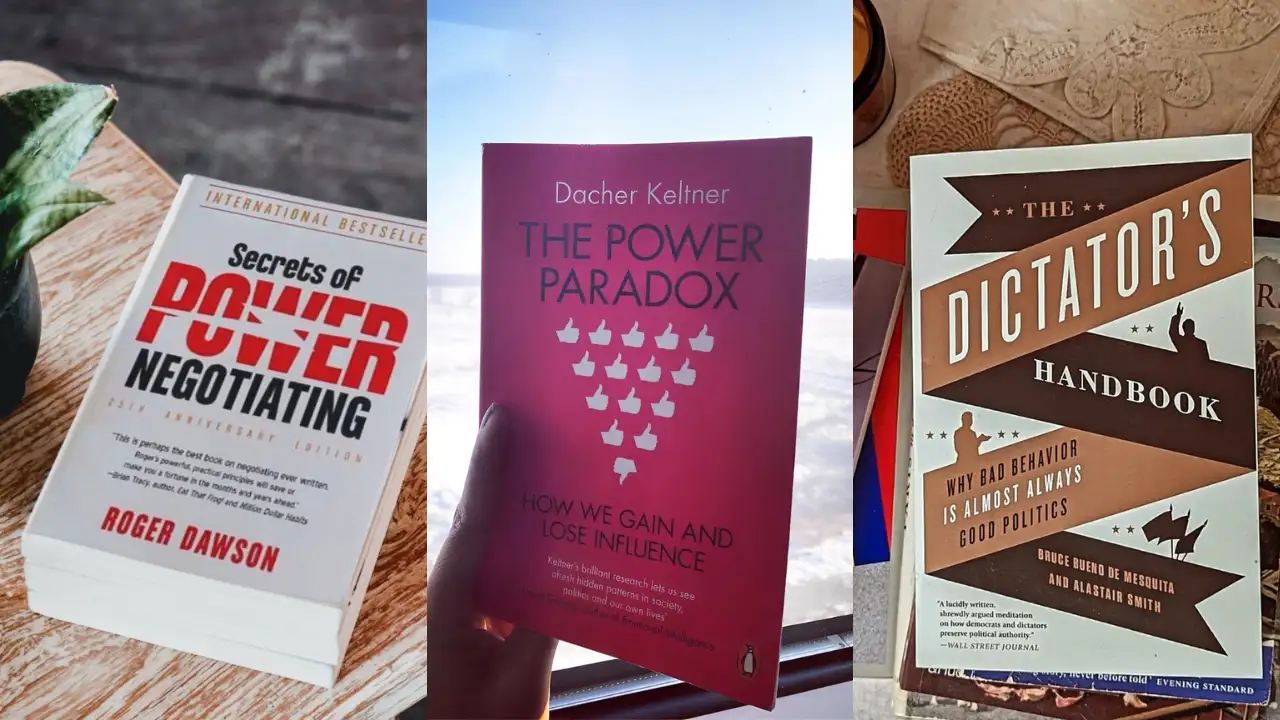By Girish Shukla
Copyright timesnownews

Business schools love to talk about leadership, strategy, and management. They’ll show you fancy frameworks and case studies that cost you six figures to learn. But here’s what they won’t tell you: real power isn’t found in textbooks or lecture halls. It lives in the pages of books written by people who actually wielded it, lost it, and understood its true nature. While your classmates are memorising Porter’s Five Forces, you could be learning how Napoleon conquered Europe, how Steve Jobs built Apple’s empire, or how ancient Chinese generals won wars without fighting. These eight books don’t just teach you about power. They strip it down to its raw essence and show you how it really works in the real world. The difference is simple. MBA programs teach you how to manage power once you have it. These books teach you how to get it in the first place. They reveal the unspoken rules that actually govern success, influence, and control. Most importantly, they do it through stories and examples that stick with you long after you close the book. Also Read: 8 Books on Ancient Wisdom That Feel Shockingly Relevant Today 1. Power: Why Some People Have It and Others Don’t by Jeffrey Pfeffer This book strips away romantic notions about leadership and reveals how power actually works in organisations. Pfeffer takes readers through real corporate scenarios where nice people finish last and those who master political skills rise to the top. The narrative follows various executives and their strategies for climbing hierarchies, showing how traditional merit-based thinking fails in practice. Through case studies and research, the story unfolds to demonstrate that understanding organisational dynamics and building strategic relationships matter more than technical competence or ethical behaviour in gaining influence. 2. The 48 Laws of Power by Robert Greene Greene presents power as a game with specific rules that have remained constant throughout history. The book weaves together stories from ancient rulers, modern politicians, and cunning courtiers to illustrate each law. It covers it all, from Cleopatra’s seduction tactics to Napoleon’s strategic deceptions, with each chapter sounding like a thrilling historical account. The author draws a narrative that shows how power players across centuries have used similar methods to gain control, manipulate situations, and maintain dominance. Every law is demonstrated through fascinating tales of triumph and downfall from history’s most influential figures. 3. The Dictator’s Handbook: Why Bad Behavior Is Almost Always Good Politics by Bruce Bueno de Mesquita & Alastair Smith The authors reveal the harsh logic behind political survival in any system, from democracies to dictatorships. The story follows the calculating mindset of leaders who must choose between serving the public good and staying in power. Through examples spanning from ancient Rome to modern corporations, Bueno de Mesquita and Smith show how rational actors make decisions that may seem immoral but ensure their political survival. The book reads like a strategic manual, explaining why leaders often betray their principles and how they build coalitions to maintain control over their domains. 4. Power for All: How It Really Works and Why It’s Everyone’s Business by Julie Battilana & Tiziana Casciaro This book follows the journey of understanding power as a fundamental force that shapes every human interaction. The narrative explores how power operates in families, workplaces, and societies, showing it’s not just for politicians and CEOs. Battilana and Casciaro guide readers through stories of ordinary people who gained influence and made change happen. The plot unfolds across different settings, from community organisers fighting for justice to employees transforming workplace cultures. The story demonstrates that power is accessible to everyone and can be used for positive social transformation. 5. The Power Paradox: How We Gain and Lose Influence by Dacher Keltner Keltner tells the story of power’s double-edged nature, showing how the very traits that help people gain influence often lead to its loss. The narrative follows individuals who rise through empathy and social intelligence but then become corrupted by their positions. Through psychological research and real-world examples, the author reveals how power literally changes the brain and behaviour. The story arc demonstrates how good people can become tyrants and how awareness of this paradox can help leaders maintain their humanity. The book reads like a cautionary tale about the intoxicating effects of influence. 6. The Hidden Power of Social Networks by Rob Cross & Andrew Parker This book uncovers how the “invisible” relationships are the main factors that have to do with an organisation’s success. Cross and Parker show readers the inside of businesses to demonstrate that social networks are the main deciding factors of productive action, rather than formal organisational charts. It follows managers who discovered that their most productive employees weren’t necessarily the highest-ranked ones but those who served as connectors in social networks. Through detailed case studies, the authors show how mapping these hidden relationships can transform business performance and reveal the real power brokers within any organisation. 7. Who Rules the World? by Noam Chomsky Noam Chomsky shows us how global power really works and why the world is not always as fair as it seems. He focuses on the story of American influence, explaining how the country keeps control through money, military strength, and strategic moves around the globe. The book shows how stronger nations often take advantage of weaker ones, and how media and propaganda shape what people think about world events. Chomsky helps readers see the gap between the ideals countries talk about and what actually happens in international relations, making us question the stories we are told. 8. Secrets of Power Negotiating by Roger Dawson Roger Dawson reveals the secret strategies that top negotiators use to win deals and get what they want. He takes readers step by step through real-life examples, showing how skilled negotiators think differently and use psychology to their advantage. The book explains techniques for reading people, creating leverage, and closing agreements successfully. Dawson also shows that these skills do not just work in business. They can help in everyday life, from family conversations to personal decisions. By learning these methods, anyone can improve their ability to influence outcomes and reach their goals. The ultimate truth that no business school wants you to know is that power isn’t about having the right degree or knowing the latest management theory. It’s about understanding human nature, reading situations correctly, and knowing when to act. These eight books have taught more CEOs, politicians, and leaders than any classroom ever could. Also Read: 10 Classic Books That Were Considered Scandalous in Their Time What makes these books different from your typical business education? They don’t just give you theories to memorise. They give you wisdom you can actually use. When you’re facing a difficult negotiation, you’ll remember lessons from ancient strategists. When you’re building influence in your organisation, you’ll draw on insights from master manipulators and empire builders. And while your competitors are stuck thinking inside the MBA box, you’ll be operating on a completely different level.



